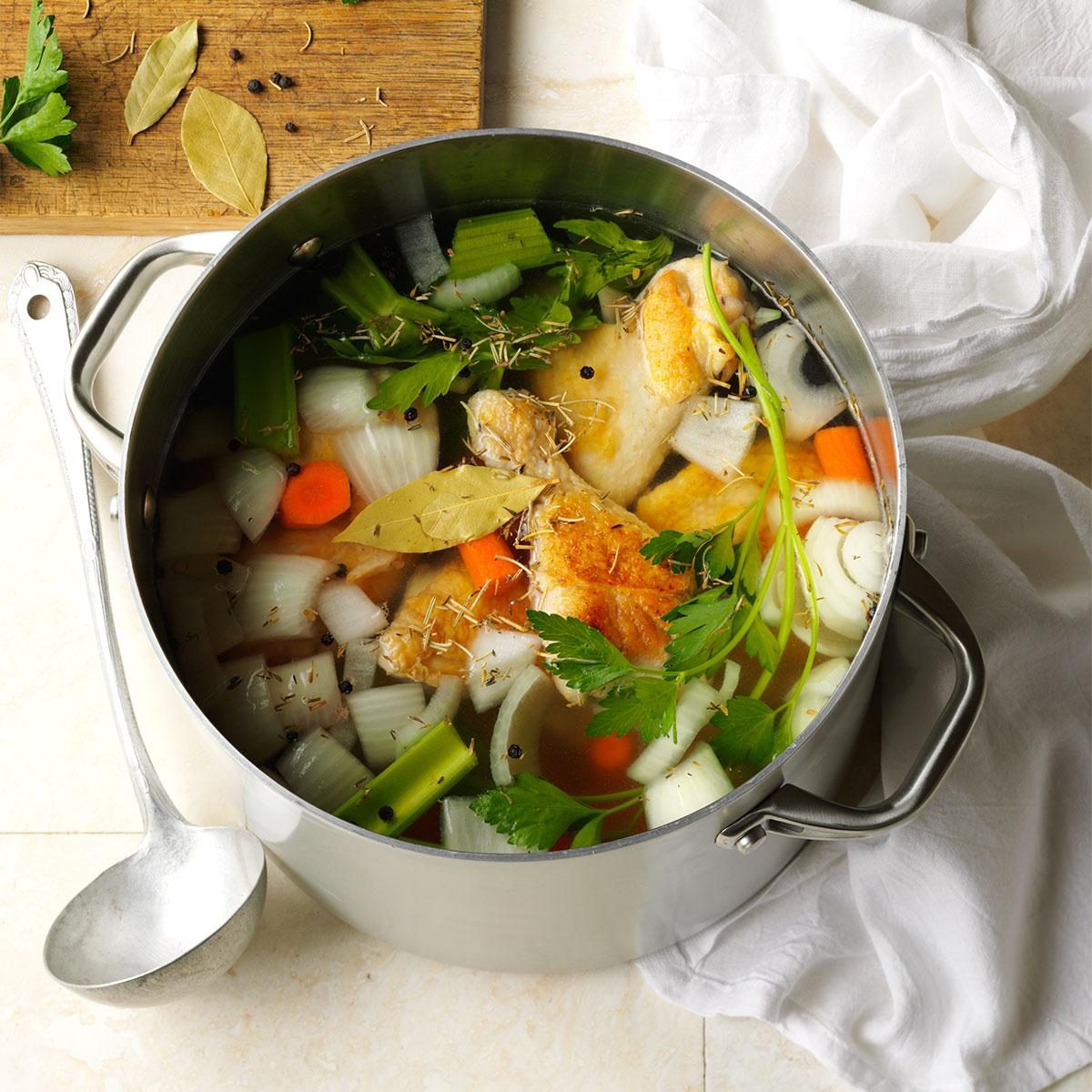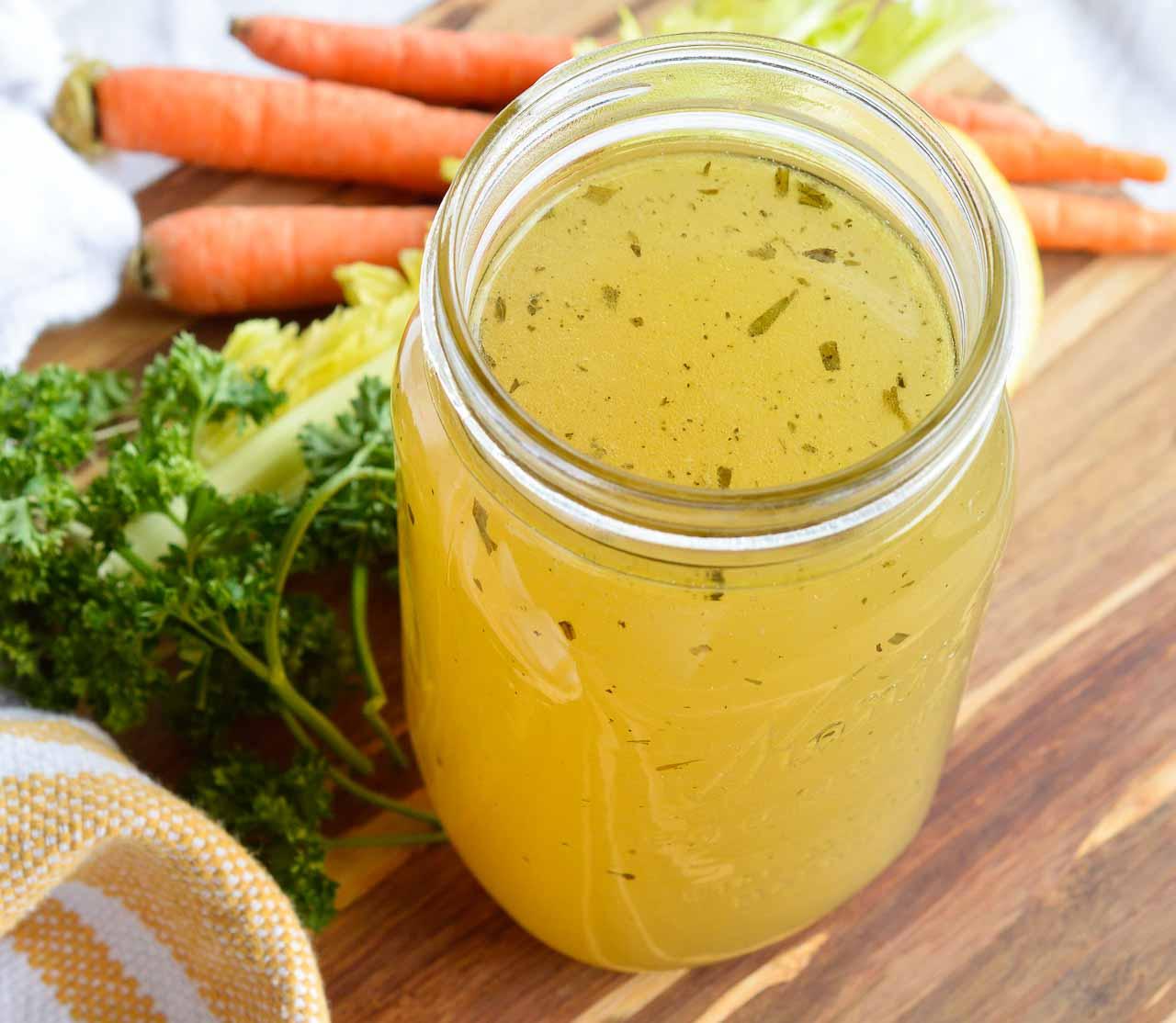When it comes to nourishing your little one, homemade chicken stock stands as an invaluable asset. Packed with an array of essential nutrients and bursting with savory flavor, it forms the perfect base for soups, stews, and purees that will tantalize your baby’s taste buds and support their growing bodies.
From promoting healthy digestion to providing a rich source of vitamins, minerals, and amino acids, chicken stock offers a multitude of benefits that make it a must-have in every baby’s kitchen. Embark on this culinary journey with us as we delve into the secrets of creating the most delectable and nutritious chicken stock for your precious child.
Introduction
Homemade chicken stock is an excellent option for babies as it is a nutrient-rich food that is easy to digest. It is a good source of protein, vitamins, and minerals, and it can help to keep babies hydrated. Chicken stock can be used as a base for soups, stews, and other dishes, or it can be given to babies on its own.
Benefits of Chicken Stock for Babies
Chicken stock has a number of benefits for babies, including:
- It is a good source of protein, which is essential for growth and development.
- It is a good source of vitamins and minerals, including vitamin A, vitamin C, and iron.
- It is easy to digest, making it a good option for babies with sensitive stomachs.
- It is a good source of hydration, which is important for babies who are at risk of dehydration.
Ingredients
Making chicken stock for babies requires a few simple ingredients that provide essential nutrients and flavors:
Chicken
- Organic, free-range chicken bones or carcass: Provides a rich source of collagen, which helps support baby’s growing joints and bones.
- Chicken meat (optional): Adds extra flavor and nutrients to the stock.
Vegetables
- Onion: Adds sweetness and depth of flavor.
- Carrot: Provides natural sweetness and vitamins.
- Celery: Balances the flavors and adds antioxidants.
- Garlic (optional): Enhances flavor and adds antibacterial properties.
Herbs and Spices
- Bay leaf: Imparts a subtle, aromatic flavor.
- Thyme (optional): Adds a delicate, earthy flavor.
- Black peppercorns (optional): Adds a hint of warmth and complexity.
Liquids
- Water: Forms the base of the stock and extracts nutrients from the ingredients.
- Apple cider vinegar (optional): Helps extract collagen from the bones.
s
To prepare chicken stock for your little one, follow these simple steps:
1. Place the chicken carcass or bones in a large pot or slow cooker.
2. Add vegetables such as carrots, celery, and onions to the pot. These vegetables will add flavor and nutrients to the stock.
3. Cover the chicken and vegetables with water. You can also add herbs and spices, such as thyme, rosemary, or bay leaves, for extra flavor.
4. Bring the stock to a boil, then reduce heat and simmer for several hours. The longer you simmer the stock, the more flavorful it will be.
5. Once the stock is finished simmering, strain it through a fine-mesh sieve into a clean container.
6. Let the stock cool completely before storing it in the refrigerator or freezer.
Tips for making a flavorful chicken stock:
• Use a variety of vegetables to add flavor to the stock. Some good choices include carrots, celery, onions, leeks, and parsnips.
• Add herbs and spices to the stock for extra flavor. Some good choices include thyme, rosemary, bay leaves, and peppercorns.
• Simmer the stock for as long as possible. The longer you simmer it, the more flavorful it will be.
• Don’t be afraid to experiment with different ingredients to create your own unique chicken stock recipe.
Storage
Storing chicken stock for babies is crucial to ensure its freshness and quality. Here are some tips to guide you:
To store chicken stock in the refrigerator, let it cool completely before transferring it to an airtight container. It can be kept in the fridge for up to 3 days.
Freezing Chicken Stock
Freezing chicken stock is an excellent way to preserve it for longer periods. Follow these steps to freeze chicken stock:
- Let the chicken stock cool completely.
- Pour the stock into freezer-safe containers, leaving some headspace for expansion.
- Label the containers with the date and contents.
- Freeze the chicken stock for up to 6 months.
Reheating Chicken Stock
When you’re ready to use the frozen chicken stock, thaw it overnight in the refrigerator or under running cold water. Once thawed, you can reheat the stock in a saucepan over medium heat until it reaches the desired temperature.
Variations

The basic chicken stock recipe can be varied in many ways to create different flavors. Here are a few ideas:
To make a richer stock, use a combination of chicken bones and meat. You can also add vegetables such as carrots, celery, and onions to the pot.
Herb and Spice Variations
Add herbs and spices to the stock to create different flavors. Some popular options include:
- Fresh thyme
- Fresh rosemary
- Fresh parsley
- Whole black peppercorns
- Bay leaves
Troubleshooting
Making chicken stock for babies can be straightforward, but there are a few common problems that may arise. Here are some troubleshooting tips to help you achieve the perfect stock:
If your stock is cloudy, it may be due to impurities or fat. To clarify the stock, strain it through a fine-mesh sieve or cheesecloth. You can also chill the stock overnight and skim off the solidified fat that rises to the top.
Bland Flavor
If your stock lacks flavor, it may be because you didn’t use enough vegetables or herbs. Add more vegetables, such as carrots, celery, and onions, and herbs, such as parsley, thyme, and bay leaves, to enhance the flavor.
Last Point

As you master the art of crafting homemade chicken stock, you’ll not only provide your baby with a culinary delight but also a foundation for a lifetime of healthy eating habits. Remember, the key lies in selecting high-quality ingredients and simmering the stock patiently to extract its full flavor and nutritional value.
Experiment with different variations to create unique taste profiles that will keep your little one’s palate engaged. With each spoonful of this nourishing elixir, you’ll be nurturing their growth and well-being, creating memories that will last a lifetime.
Frequently Asked Questions
Can I use store-bought chicken stock for my baby?
While store-bought chicken stock may be convenient, it often contains high levels of sodium and preservatives that are not suitable for babies. Homemade chicken stock allows you to control the ingredients and ensure it’s free from harmful additives.
How long can I store chicken stock for my baby?
Properly stored in an airtight container in the refrigerator, homemade chicken stock can last for up to 3 days. For longer storage, you can freeze the stock in ice cube trays or freezer-safe containers for up to 3 months.
Can I add vegetables to my chicken stock?
Absolutely! Adding vegetables like carrots, celery, and onions to your chicken stock will enhance its flavor and nutritional value. Simply sauté them in a little olive oil before adding them to the stockpot.
